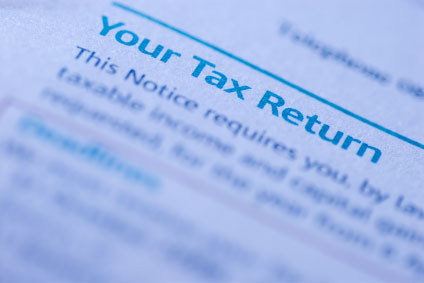An increasing number of people are making the decision to work and move abroad. For many of these people one of the big bonuses of doing so would be to reap the benefits of overseas tax systems and thus going a long way to preserving their individual wealth.

The big plus point found in other countries is exemption from UK income tax. To do this you may have to jettison your UK residency status and become a non-UK resident. Depending on where your new place of residence is you will then see a marked improvement on your tax contributions, in some places, such as Dubai, you may pay no income tax at all.
There is a simple assessment for whether you are a non resident for income tax purposes: do you work overseas and average less than 91 days per tax year in the UK?
If your answer is ‘yes’ then you will be split into two distinct groups; those of you who intend on returning to the UK when your employment is over and those of you who will become expats. This distinction leads to slightly different tax treatment and must be approached differently.
A temporary non-resident, or a non-resident employee, is someone who will return to the UK once their job is over. Normally this means you will be employed for at least one full tax year. You will be classed as non-resident from the date of departure to the date of return, which in turn means there will be no income tax liability on earnings.
During this period of non-residency you may visit the UK up to a maximum of 183 days in a single tax year, or an average of less than 91 days per year over a maximum of four tax years. However be warned, HMRC will expect proof (such as a contract) and as soon as you return to the UK permanently, any overseas income will be liable to Tax.
The benefit of a temporary non-residency is the immediate classification as a UK resident upon your return.
Permanent non-residents, or those of you that intend to remain outside the UK after your employment has ceased, must make it clear that they intend to leave the UK for a substantial period of time. It might make sense from an interest and capital gains perspective as opposed to classifying yourself as a non-resident employee, who can’t avoid these taxes.
Again, expats face the same visitation limits if they wish to avoid tax but must also prove they are leaving the UK for at least three years. You will have to show that you do not intend to return and that you have ‘moved’ your life abroad. If, for example, you have sold your house in the UK and purchased one elsewhere, then this will be easy to establish. If you return to the UK often and make little or no effort to create a life overseas then HMRC may consider you a UK resident. Keep in mind this classification does not exclude you from living in the UK in the future.
For those of you who expect to work abroad for at least three years, a choice must be made between the benefit of temporary non-resident employee status and the enhanced tax benefits that come with permanent non-residency. Most expats will have a higher than average wage and a lower than average cost of living. Investing excess cash makes more sense if you do not face income and capital gains tax.
Violations of non-residency
There are a number of ways you can violate your status and fall foul of the taxman. Spending too much time in the UK is the most obvious, with working for less than a full tax year abroad another easy way of breaching status. HMRC have said: “if there is a break in full-time employment, or some other change in your circumstances during the period you are overseas, we would have to review the position to decide whether you still meet the conditions” and “If at the end of one employment you returned temporarily to the UK, planning to go abroad again after a very short stay in this country, we may review your residence status in the light of all the circumstances of your employment abroad and your return to the UK”.
You should also ensure you are in full time employment as HMRC may challenge you if you are not, even if you spend a large amount of time away from the UK.
If you are trying to make a decision on establishing permanent non-residency then please contact an IFA who will be able to talk you through the various pros and cons of moving abroad from a financial perspective.

